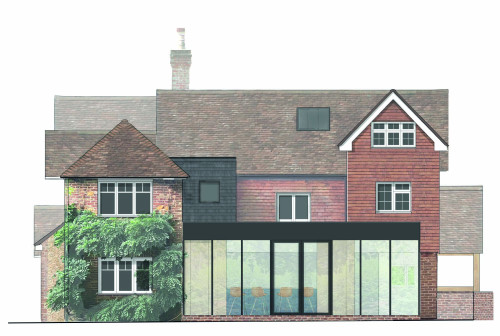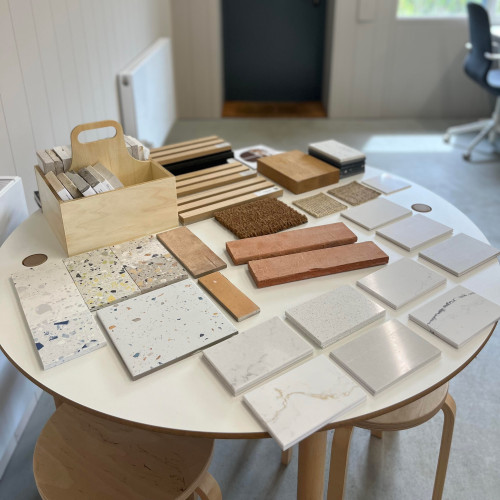Other than Drawings, What Else Does an Architect Do?
12 August 2024 by Russell McCourty
Old browser alert! We have detected you are using a pretty old browser. This website uses cool features that can't be supported by your browser.
If we let you see the website it would look all weird and broken, nobody wants that!
Update your browser!12 August 2024 by Russell McCourty
When you think of an architect, the first thing that likely comes to mind is drawing – those stunning artistic illustrations or intricate technical computer drawings of buildings. While it's true that creating drawings is a vital part of an architect's role, there's so much more to the profession. There are so many tasks that architects handle to bring a project from ideas in the brain to an actual, successful building.

Every project begins with understanding the client’s vision. This involves detailed consultations to assess their needs, desires, and budget. Architects must be skilled listeners and communicators to translate these requirements into feasible designs. For us, really listening to what you’ve asked for, interrogating, and identifying your needs and wants is such a crucial part of our journey.
Before any design work can begin, architects must analyse the constraints and opportunities of the site. This includes evaluating everything from the location’s topography to the travel paths and sun path, and everything in between. A thorough site analysis helps in understanding potential challenges and opportunities, ensuring that the design is both functional and harmonious with its surroundings.
Architects often serve as lead coordinators of a construction project, usually overseeing the entire process. This includes coordinating with engineers, other specialist consultants, and contractors to do our best to deliver a project that stays on track and within budget. Effective project management is crucial to navigate the complexities of construction and to address any issues that arise promptly.
Navigating the maze of Planning laws and Building Regulations is another critical aspect of an architect’s job. Architects ensure that designs comply with all relevant regulations and work with local authorities to secure the necessary approvals. This involves a detailed understanding of relevant legal standards and a proactive approach to addressing compliance responsibilities before they become issues.

The construction industry contributes enormously to the environment and climate change. We are committed to integrating eco-friendly practices into our designs from day one. This includes selecting sustainable materials, optimizing energy efficiency, and incorporating renewable energy sources. By prioritising sustainability, we pride ourselves on creating buildings that are not only beautiful but also environmentally responsible.
Once construction begins, we prefer not to simply hand over the plans and walk away. We love remaining actively involved to ensure that the construction adheres to our design intent and quality standards. During the build, we would conduct regular site visits and inspections to monitor progress and address any queries that might be raised in a sensible and pragmatic way.
The inside of a building is just as important as the exterior. Whether you appoint us or have an interior designer that you already love, it is key to plan the layout, choose materials, and select finishes that enhance the functionality and aesthetics of the space. Effective space planning ensures that the interior environment is as thoughtfully designed as the outside look of the building itself.
The architectural field is constantly evolving with advancements in technology and, even though we love picking up a pen and sketchpad, we are not one to sit on our laurels when it comes to new technologies. Whether this is offering a virtual reality (VR) tour around your potential project, being ahead of the trend in contemporary architectural styles, or integrating Modern Methods of Construction (MMC’s) into the fabric of the building, there are so many ways we pride ourselves on being progressive designers.
At George & James Architects, we believe that the role of an architect extends far beyond creating drawings. It encompasses a broad range of skills and responsibilities that are crucial to bringing a project to life. From the initial client consultation to the final touches on the interior design, architects are involved in every step of the process, ensuring that the finished product is a true reflection of the client’s vision and meets the highest standards of quality and sustainability.